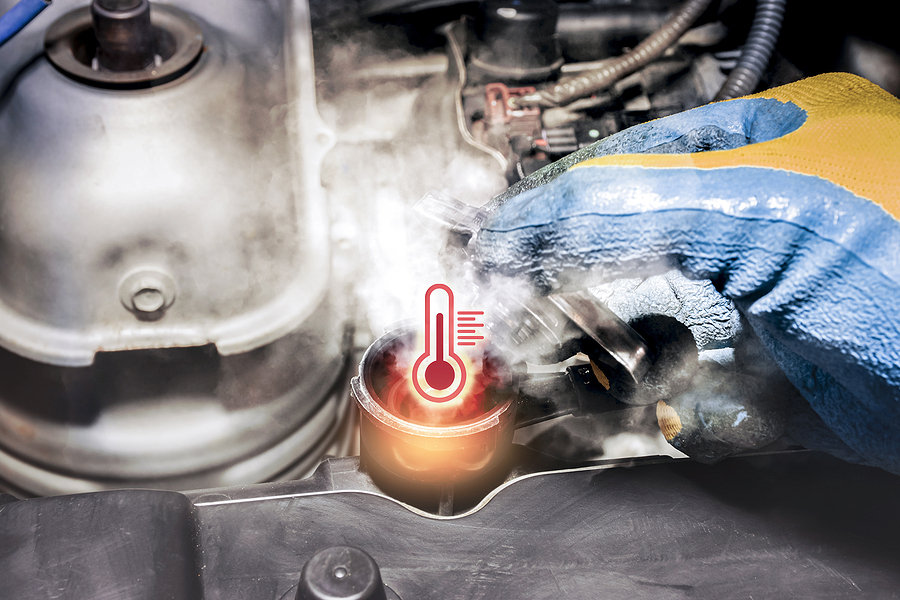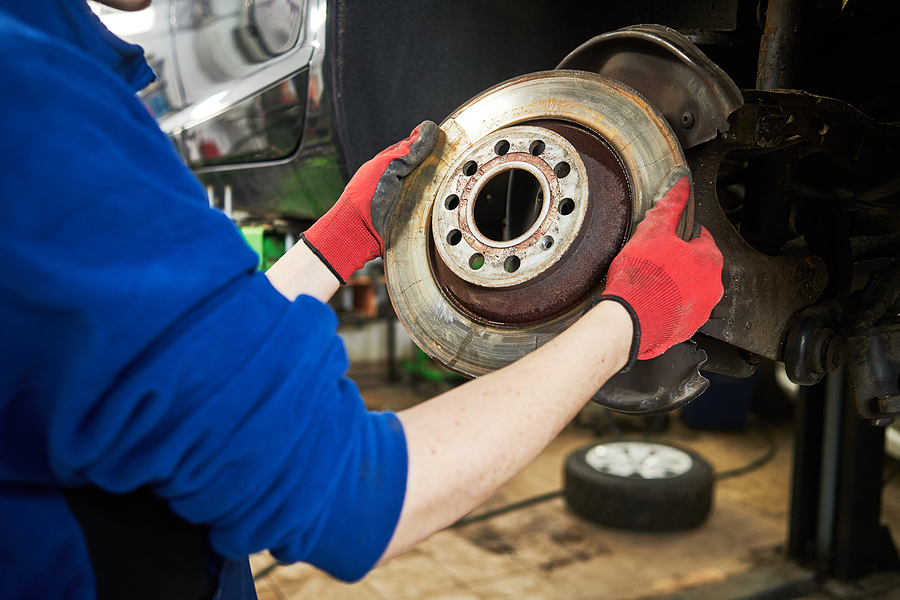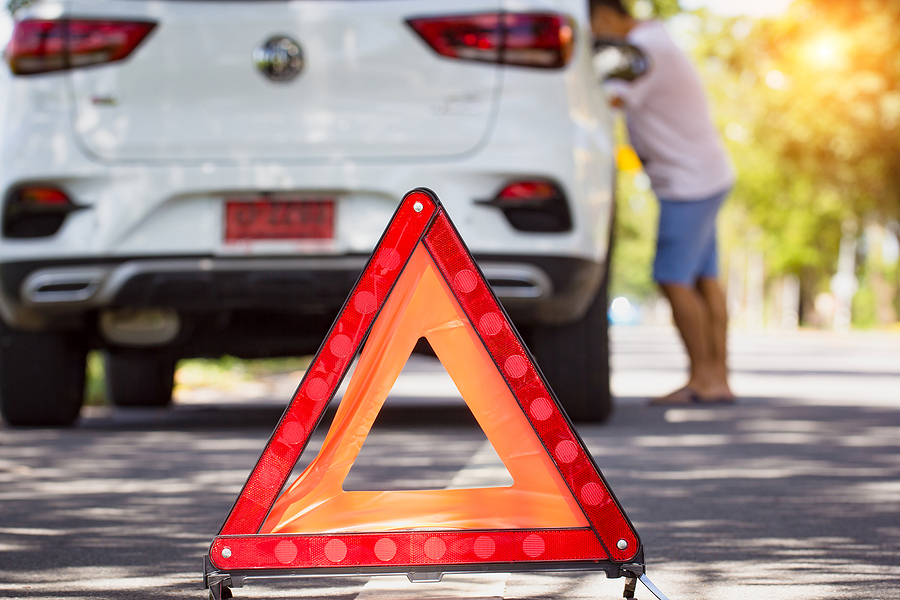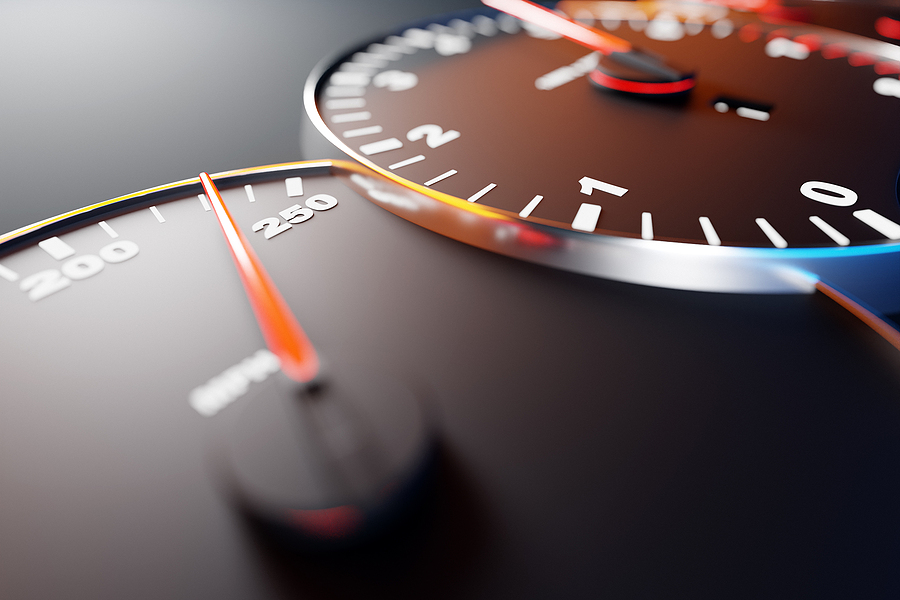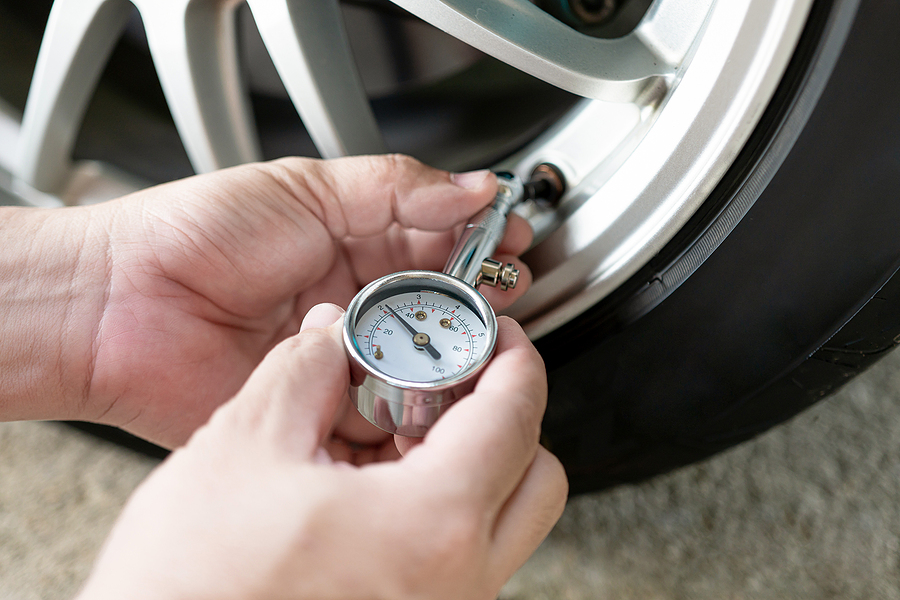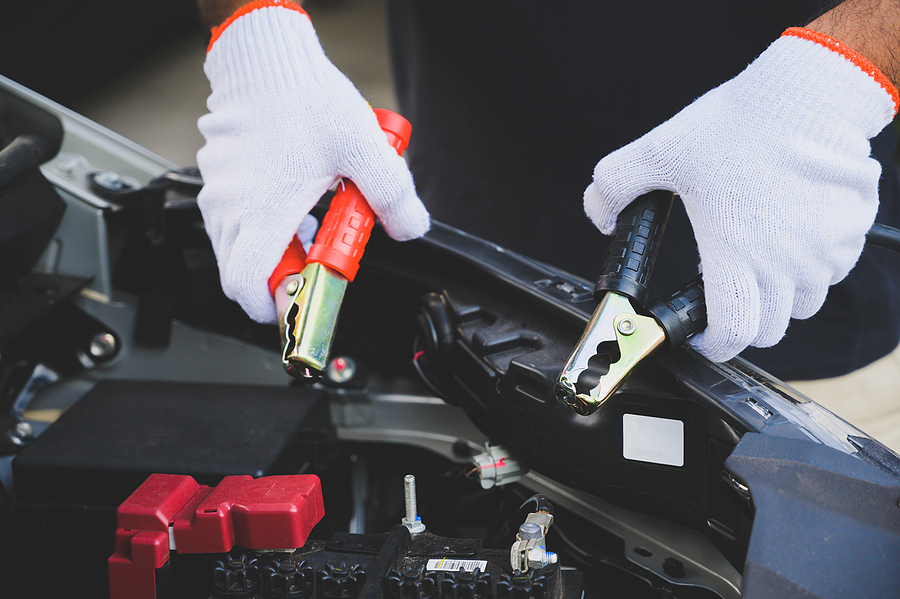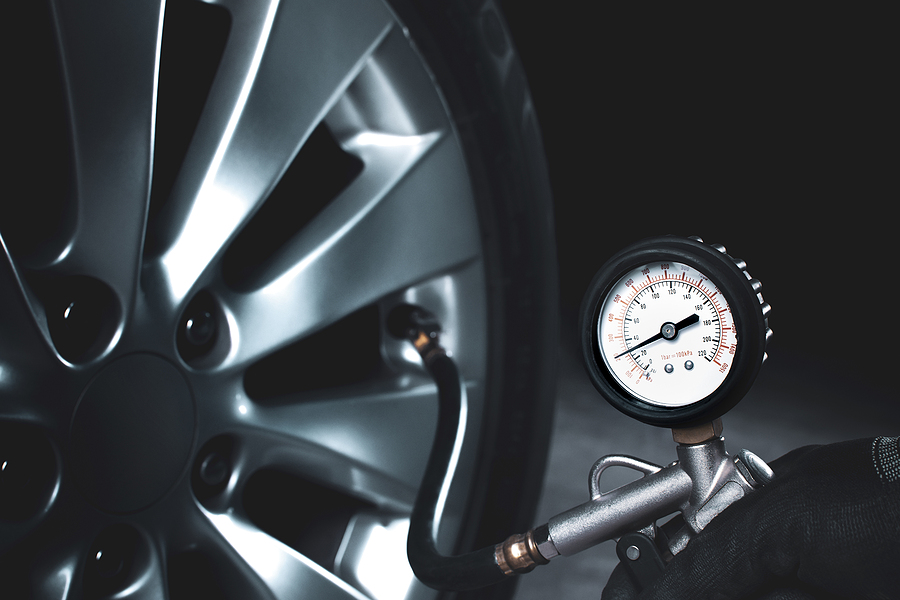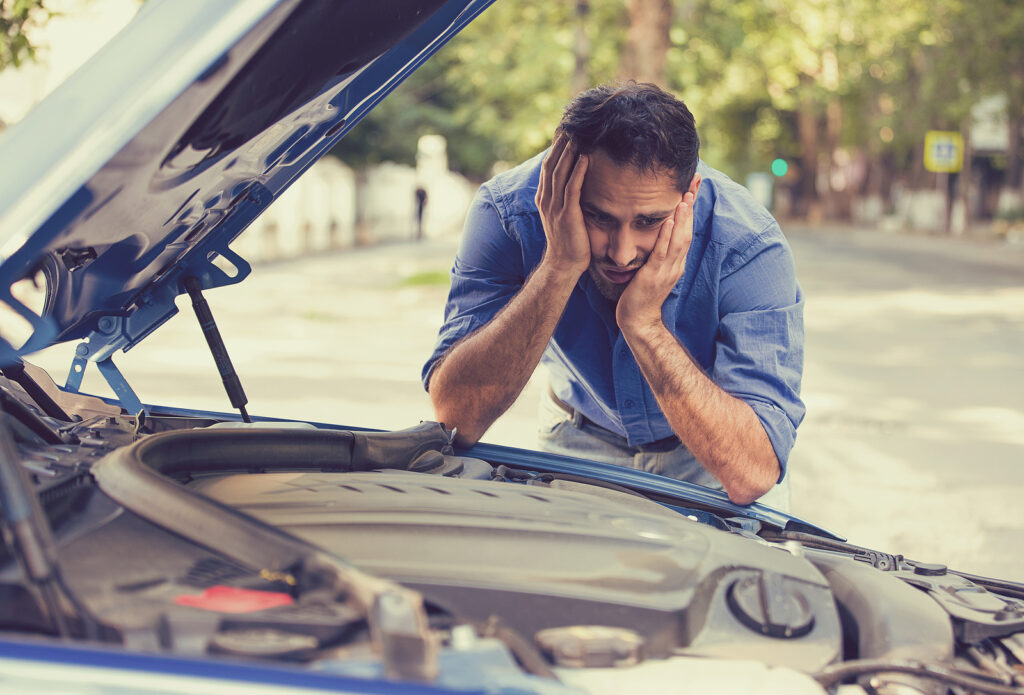Temperatures are dropping, and rising, and dropping again. Quite typical for Indiana climate patterns this time of year. One of the most effected automotive parts during this seasonal transition are tires. And as fall continues and the winter months approach, many drivers begin to worry about how the cold weather will have an effect on their cars. One of the most common questions is, “What happens to my car tires in the cold?”
Continue below to learn exactly what you need to know about the way cold temperatures affect your car tires, plus a guide on how to check your tire pressure.
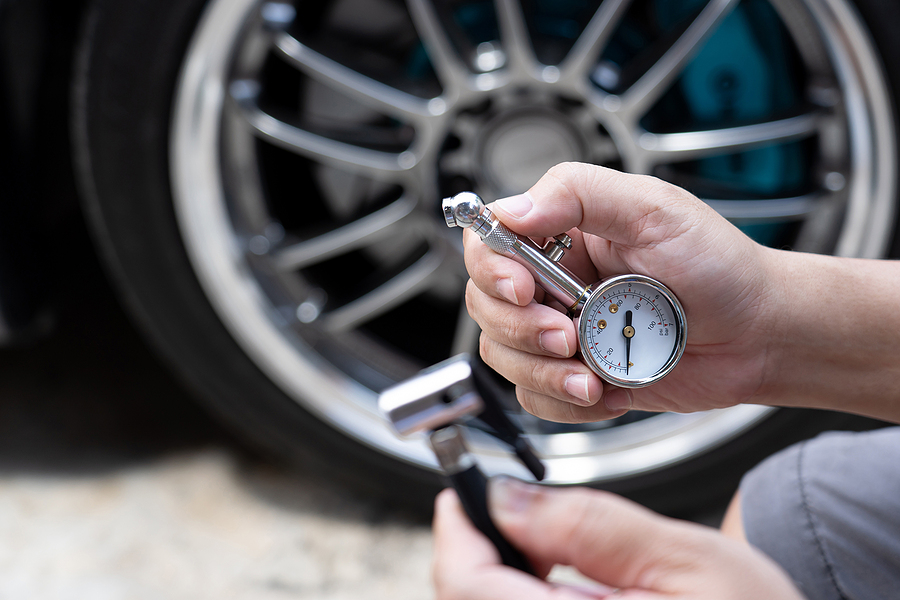
Top 5 Ways Cold Weather Affects Car Tires
❶ Cold weather can cause your tires to lose pressure.
As the temperature drops, so does the air pressure in your tires. This can lead to a decrease in performance and fuel efficiency, as well as increased wear and tear on your tires. It’s important to check your tire pressure regularly during the winter months to ensure that it stays at the proper level.
❷ Cold weather can make your tires harder.
The cold weather can make your car tires harder, which can lead to less traction and increased wear. It’s important to check your tires regularly for signs of wear and tear, and to have them replaced when necessary.
❸ Cold weather can reduce the lifespan of your tires.
The cold weather can reduce the lifespan of your tires by causing them to crack and degrade faster. It’s important to inspect your tires regularly for signs of damage, and to have them replaced when necessary.
❹ Cold weather can make it more difficult to change a tire.
If you have a flat tire, the cold weather can make it more difficult to change. It’s important to be prepared for this possibility by having the proper tools and knowledge to change a tire in the cold.
❺ Cold weather can increase the risk of a blowout.
The cold weather can also increase the risk of a tire blowout. This is because the air pressure in your tires is lower in the cold, which makes it more likely for the tire to fail. It’s important to check your tire pressure regularly and to have your tires replaced when necessary.
Conclusion…If you’re concerned about how the cold weather will affect your car tires, be sure to follow these tips. By taking care of your tires, you can help to ensure that they last longer and perform better in the cold.
How to Check Tire Pressure
It is important to check your tire pressure regularly to ensure safe driving conditions and to extend the life of your tires. You can purchase a tire pressure gauge at most auto parts stores. To check your tire pressure, remove the valve cap from each tire and press the gauge firmly onto the valve stem. The gauge will give you a reading of the pressure in your tires. Compare this to the recommended tire pressure for your vehicle, which can be found in your owner’s manual or on a placard located on the driver’s side door jamb or glove box.
If your tires are underinflated, use a portable air compressor or visit a service station to inflate them to the proper pressure. If your tires are overinflated, release some of the air by pressing on the gauge and then removing it from the valve stem.
Check Your Tire Tread Too!
It is also a good idea to check your tire tread regularly. You can do this by inserting a penny into the tread groove with Lincoln’s head upside down. If you can see the top of Lincoln’s head, your tread depth is less than 2/32nds of an inch and it is time to replace your tires.
Conclusion…Checking your tire pressure and tread regularly will help ensure safe driving conditions and extend the life of your tires.
Are you ready to get your tires, wheels, brake pads, and brake rotors ready for the upcoming season? Contact Autohaus Dierolf at 317-571-0800 for superior factory scheduled maintenance in Carmel, Indiana. We work on all European vehicles, but specialize in BMW, Mercedes, Volkswagen, Porsche, and Audi repairs and services.
Related Posts:
Frequently Asked Questions About Tire Care
How Does Tire Width Affect Gas Mileage in Cars?
Top 4 Car Maintenance Services That Keep You Safe

